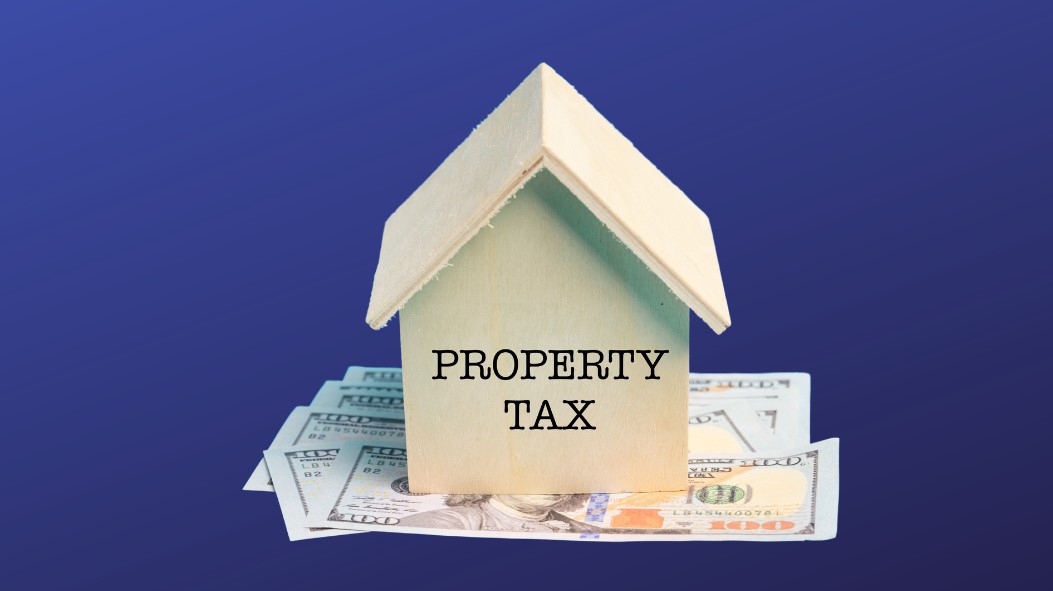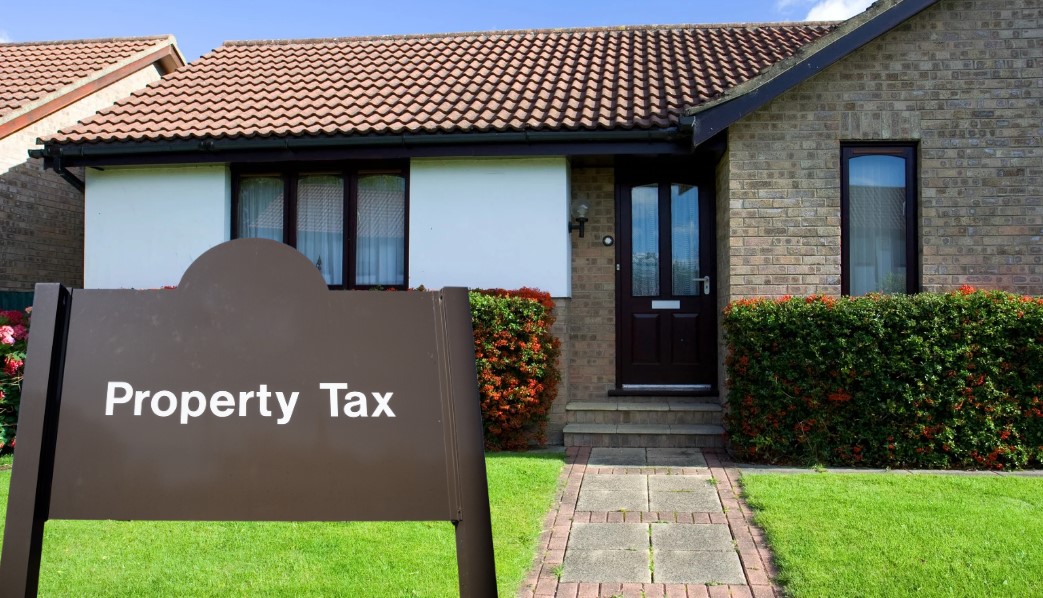Property taxes are critical to consider when evaluating real estate, especially since they can differ not only between states but also between individual properties.
On average, households in the United States pay about $2,400 annually in real estate taxes, but these amounts can fluctuate widely.
For investors, the variation in tax rates is a pivotal factor when selecting locations to ensure that their investments are not adversely affected by high property tax rates.
Key Takeaways
- Real estate taxes vary widely by state, impacting investment decisions.
- Some states have significantly lower property taxes, offering financial advantages to taxpayers.
- Identifying states with the highest property taxes is crucial for managing real estate investment risks.
- Property owners can adopt strategies to lower their property tax assessments.
- Landlords need to understand tax deductions and implications to optimize rental property profitability.
Personal Property: A Separate Tax Classification

Personal Property Taxes provide a framework for taxing movables, differentiating from immovable property taxation according to IMF. This tax type encompasses:
- Vehicles: Cars, boats, and aircraft
- Equipment: Machinery and office devices
- Other Tangibles: Items which can be owned and moved
Real Property Taxes, on the other hand, are levied on lands and structures anchored to one location, such as homes and commercial buildings as noted by Bankrate. Local and state governments rely on these taxes for services crucial to community welfare.
The Divergence between Property Taxes on Real Estate and Personals
When differentiating Real Estate Taxes from Personal Property Taxes, their distinct scopes must be considered:
| Real Estate Taxes | Personal Property Taxes |
|---|---|
| Applied to immovable assets (e.g., land, homes) | Applied to movable items (vehicles, equipment) |
| Funds public services (schools, roads) | May vary greatly by jurisdiction |
| Generally consistent across different regions | Often subjective, with exemptions for personal use |
| Reflects property value | Can depend on item’s type and usage |
Real Estate Taxes are directed at assets that are tangible and static, contrasting with movables covered by Personal Property Taxes. Although homes might seem universally tangible, certain movable structures, such as mobile homes, might be taxed as either real property or personal property based on regional laws.
Regions Lacking Property Tax

While it’s true that all states impose some form of property tax, certain municipalities take a different approach. For example, Stafford in Texas is notable for its relatively minimal property tax burden.
Property taxes are critical for funding essential local amenities, including educational institutions, emergency services, roads, and community libraries. Despite the universal application of property taxes across states, the rates can vary considerably.
Below is a breakdown of property tax distinctions:
- Uniform Presence: Every state administers property taxes.
- Variable Rates: The percentage of tax assessed on properties varies by state.
- Municipal Exceptions: Select cities may have reduced or absent property taxes.
Investors should scrutinize state tax regulations, as these can substantially affect the profitability of property investments.
10 States With The Lowest Property Tax

When considering where to purchase property based on tax rates, one must look beyond the percentage figures. States with lower home values might offer more savings in property tax than seemingly low rates in states with high-value homes. It’s equally important to weigh these against median household incomes.
Here are the states where homeowners enjoy some of the most minimal property tax rates by Business Insider:
10. New Mexico
- 0.55% of assessed home value
- $880 property tax per year based on state median home value
- $52,032 median household income
9. Mississippi
- 0.52% of assessed home value
- $508 property tax per year based on state median home value
- $45,925 median household income
8. Arkansas

- 0.52% of assessed home value
- $532 property tax per year based on state median home value
- $48,177 median household income
7. South Carolina
- 0.5% of assessed home value
- $689 property tax per year based on state median home value
- $52,001 median household income
6. West Virginia
- 0.49% of assessed home value
- $464 property tax per year based on state median home value
- $44,940 median household income
5. District of Columbia
- 0.46% of assessed home value
- $2,057 property tax per year based on state median home value
- $98,620 median household income
4. Delaware
- 0.43% of assessed home value
- $1,078 property tax per year based on state median home value
- $67,249 median household income
3. Alabama
- 0.33% of assessed home value
- $398 property tax per year based on state median home value
- $51,014 median household income
2. Hawaii
- 0.26% of assessed home value
- $1,324 property tax per year based on state median home value
- $81,711 median household income
1. Louisiana
- 0.18% of assessed home value
- $243 property tax per year based on state median home value
- $54,216 median household income
Top 10 States with Elevated Property Tax Rates

10. North Dakota
- 1.42% of assessed home value
- $1,658 property tax per year based on state median home value
- $62,081 median household income
9. Vermont
- 1.59% of assessed home value
- $3,444 property tax per year based on state median home value
- $62,088 median household income
8. Michigan
- 1.62% of assessed home value
- $2,145 property tax per year based on state median home value
- $55,244 median household income
7. Connecticut
- 1.63% of assessed home value
- $4,738 property tax per year based on state median home value
- $85,993 median household income
6. Illinois
- 1.73% of assessed home value
- $3,507 property tax per year based on state median home value
- $68,578 median household income
5. Wisconsin

- 1.76% of assessed home value
- $3,007 property tax per year based on state median home value
- $62,494 median household income
4. Nebraska
- 1.76% of assessed home value
- $2,164 property tax per year based on state median home value
- $59,730 median household income
3. Texas
- 1.81% of assessed home value
- $2,275 property tax per year based on state median home value
- $62,353 median household income
2. New Hampshire
- 1.86% of assessed home value
- $4,636 property tax per year based on state median home value
- $73,159 median household income
1. New Jersey

- 1.89% of assessed home value
- $6,579 property tax per year based on state median home value
- $88,343 median household income
Note: Property tax rates can greatly vary within a state due to local taxes. Detailed research and professional guidance are recommended to accurately assess property taxes specific to different localities, information above is provided by the same source of Business Insider.
Determining Real Estate Taxation
Valuation of the Property
Regular evaluation of properties is a crucial step that takes place, which may vary in frequency based on jurisdiction. During the assessment, a value is established, which could involve comparison with similar recently-sold properties, adjusting for unique factors affecting value.
Alternatively, the replacement cost method might be applied, which estimates the expense to rebuild the property from scratch, accounting for depreciation. For commercial properties, the assessment might be based upon the potential rental income, reflecting the net income the property could generate.
Computation of Tax Based on Assessed Value
Following the assessment, the property’s value is multiplied by the local tax rate to determine the tax obligation. For instance, an assessed $200,000 property at a 1.5% tax rate results in a $3,000 tax bill. In some areas, taxation might be expressed in “mill” rates, where one mill represents a tax amount per $1,000 of assessed value.
Comparative Property Tax Implications for Investors and Homeowners

Property tax assessment can differ, often resulting in real estate investors shouldering higher taxes compared to individuals who own and occupy their homes. The underlying reason is that rental properties are typically viewed as more valuable, attributed to their ability to generate income, whereas a home that is not generating income is not seen in the same regard.
Investors discovering their tax bill exceeds expectations can find their actual profit is lower than their initial financial forecasts. To mitigate surprises, it is crucial for investors to engage with the local tax assessor’s office to understand any prospective changes in property tax.
Key considerations for real estate investors include:
- Rental properties: Often assessed with higher value.
- Income generation: Increases the property’s assessed value.
- Property tax bill: Can be higher than anticipated, affecting cash flow.
- Proactive measures: Confirm potential tax amounts with the tax assessor.
Distinction Between Real Estate and Property Taxes

Real Estate Taxes:
- Levied on immovable property
- This includes homes, buildings, and the land they reside on
Personal Property Taxes:
- Charged on movable assets
- Examples are vehicles, machinery, and equipment
Despite the broad use of “property taxes” to describe taxes on possessions, the term encompasses both real estate taxes, which are based on ownership of real property, and personal property taxes, which are imposed on movable assets as per IMF. Understanding these differences is crucial for fulfilling tax obligations properly.
Strategies to Reduce Property Taxes
- Confirm Accuracy of Property Details: It’s crucial for property owners to make sure local tax assessors have the accurate information about their property which includes the size of the lot, house square footage, and the count of bedrooms and bathrooms.
- Consider Long-term Value vs. Tax Increase: Before making substantial modifications such as adding rooms or upgrading features, weigh the long-term financial benefits against the potential hike in tax assessments.
- Maintain Modest Exterior Appeal: Higher curb appeal can lead to a higher assessed property value, so keeping the exterior neat but modest can influence the assessment.
- Compare with Neighbors: Property owners should talk with neighbors to ensure their property’s assessed value aligns reasonably with similar properties in the area according to Faster Capital.
- Guide the Assessor’s Attention: If there are factors that might detract from the home’s value, homeowners can point these out during an assessor’s visit to ensure a fair assessment.
Tax Implications and Deductions for Property Rentals

Diligent record-keeping throughout the fiscal year is key for landlords aiming to optimize their tax deductions. Utilizing property management software simplifies tracking rental income and expenses. Solutions like Landlord Studio enable property owners to maintain digital records, synchronize bank statements, and produce necessary financial reports at a moment’s notice, thereby simplifying the end-of-year tax filing process.
Landlords can leverage several operational expenditures as tax deductions to reduce taxable income, such as:
- Interest on mortgages and credit cards
- Costs for insurance coverage on the property
- Expenses for maintenance and property upkeep
- Travel costs associated with managing the rental property
- Fees for professional services including property management or leasing
- Legal and accounting services fees
- Local and state property tax payments
Boosting Tax Savings Through Depreciation
Real estate depreciation stands out as a significant deduction for investors in residential rental property. The IRS allows landlords to spread the cost of their property (land not included) across 27.5 years. For example, with a building worth $200,000 and land valued at $50,000, one could deduct the building’s cost of $150,000 gradually, resulting in annual deductions of approximately $5,454.
Landlords must be aware of the depreciation recapture tax, which the IRS enforces at the point of property sale, recouping a portion of the depreciation benefits previously claimed as highlighted by IRS. This emphasizes the importance of understanding long-term tax strategies for property investments.
Exploring Tax-Savvy Methods

Investors should never be caught off-guard by end-of-year property tax bills. To optimize the profitability of a rental portfolio, it’s crucial to meticulously analyze investment properties. Key performance indicators, such as capitalization rate, cash flow, net operating income, and internal rate of return, play an integral role in this evaluation.
Having robust systems to track all income and expenses throughout the year is also essential. This vigilance allows property investors to maximize their deductible expenses and reduce their overall tax liability come tax time.
Key Resources for Real Estate Investors:
- Maximizing Deductions: Travel and Mileage for Rental Properties
- Crafting an Effective Income Statement for Your Rentals
- Understanding Capitalization Rates for Real Estate Investment
- Top Five Tax Strategies for Real Estate Investors
- Navigating Profit and Loss Statements for Your Rental Properties
FAQ
Final Words
By arming yourself with knowledge about how property taxes work, identifying opportunities for tax reductions, and staying abreast of changes in tax legislation, you can make well-informed decisions that optimize your property’s financial potential and ensure your investments are sound and sustainable.
Disclaimer
All information presented in this text is based on our own perspectives and experiences. The content is provided for informational purposes only and is a reflection of the personal views of the authors. It should not be taken as professional advice, nor should it be used as a basis for making significant decisions without consulting a qualified expert. We do not guarantee the accuracy or reliability of the information provided and shall not be held responsible for any inaccuracy, omissions, or inaccuracies. We highly recommend consulting with a qualified expert in the relevant field for personalized guidance or advice specific to your situation












